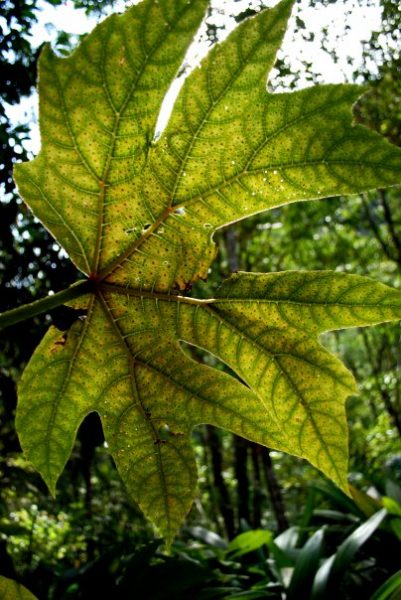Nov. 19, 2018
Observable effects of climate change that scientists had predicted in the past are now a reality: Glaciers are shrinking, plant and animal ranges have shifted and trees are flowering sooner.
New research out of Northern Arizona University adds yet another noticeable result of the warming planet—thinner leaves on tropical trees, which snowballs into much bigger issues than just the appearance of a rainforest canopy.
Christopher Doughty, faculty member in NAU’s School of Informatics, Computing and Cyber Systems, and a team of researchers looked at more than 4,000 leaves along a 3,200-meter elevation gradient in the tropics of Peru. Not only did they find that climate change will likely cause leaves to become thinner, but these leaves will become darker and absorb more of the sun’s energy as the planet warms.
“Because thinner leaves absorb slightly more energy from the sun, they will likely become darker,” said Doughty, whose research was recently published in Nature Ecology and Evolution. “This has important climate implications because absorbing more energy will possibly lead to increased warming in an already warm world.”
To test how much the world might warm, Doughty and team used a global climate model to replicate the effects darker-leaved trees might have on the Earth’s temperature. What they found was unexpected.
“We found that at current atmospheric CO2 concentrations, darker leaves will evaporate more water,” he said. “This increase in evaporation leads to more clouds. Therefore, as the leaves become darker, the atmosphere will become lighter.”

This new data leaves Doughty asking the question: In a warmer future, will darker leaves lead to warmer temperatures or more evaporation?
Though this question will likely only be answered through additional field testing, one thing is certain. Climate change will cause tropical forests to slightly darken. And should the Earth’s CO2 conditions exacerbate, it will accelerate the planet’s warming.
Carly Banks | NAU Communications
(928) 523-5582 | carly.banks@nau.edu




